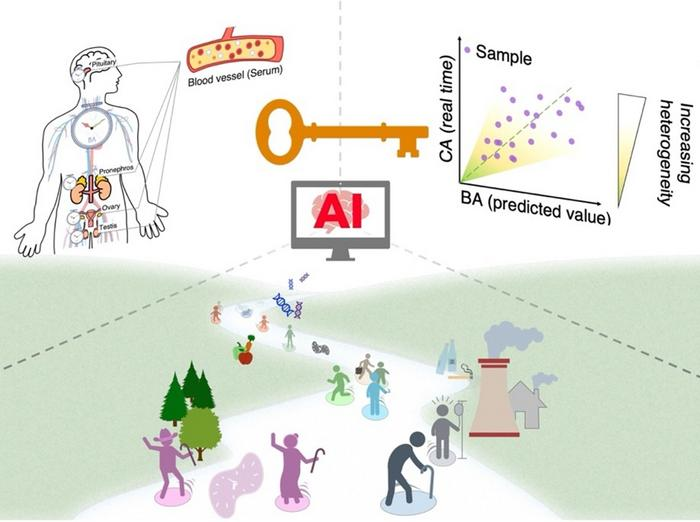March 17 - In our daily lives, we often encounter people who look younger than their peers, as if the years have left lighter marks on them. Scientists at Osaka University in Japan may have found a way to quantify this difference. They have developed a new system for estimating a person's physiological age by integrating hormone (steroid) metabolic pathways into an artificial intelligence-driven model. Physiological age is a measure of how well the body is aging, and it is a better indicator of the body's actual health than simply the year of birth.

act in accordance withAIUnderstand.The team developed a new method that analyzes 22 key steroids and their interactions in just five drops of blood to provide a more accurate health assessment.. The study, published in the journal Science Advances, is an important step forward for personalized health management and promises to enable early detection and customized interventions for age-related health risks.
Unlocking the body's aging code
Aging is not solely related to the number of years we live, but is also influenced by a combination of genetic, lifestyle and environmental factors. Traditional methods of estimating physiological age rely on a wide range of biomarkers, such as DNA methylation or protein levels, but these methods often ignore the complex network of hormones that regulate the body's internal balance.
"Our bodies rely on hormones to maintain homeostasis, so it occurred to us, why not use these hormones as key indicators of aging?" Dr. Qiuyi Wang, co-first author of the study, said. Based on this idea, the research team focused on steroid hormones, which play a key role in metabolism, immune function and stress response.
Novel Models Powered by Artificial Intelligence
The research team developed a deep neural network (DNN) model that, for the first time, explicitly considers the interactions between different steroid molecules. Instead of focusing on absolute steroid levels -- which vary widely between individuals -- the model analyzes the proportions of steroids to provide a more personalized and accurate assessment of physiological age.
"Our approach reduces the interference from individual differences in steroid levels, allowing the model to focus on meaningful patterns." explained Dr. Zi Wang, co-first and corresponding author of the study. The model was trained based on blood samples from hundreds of people, and the results showed thatDifferences in biological age tend to widen as we ageThis phenomenon is similar to the gradual widening of a river downstream.
Key findings and their significance
One of the study's most striking findings involves cortisol, a steroid hormone often associated with the stress response. The researchers found thatPhysiological age increased approximately 1.5-fold when cortisol levels doubled.This suggests that chronic stress may accelerate aging at the biochemical level, further reinforcing the importance of stress management in maintaining long-term health.
"Stress is usually discussed in general terms, but our findings provide concrete evidence that it has a measurable effect on biological aging." said Prof. Toshifumi Takao, an expert in analytical chemistry and mass spectrometry and corresponding author of the study.
Researchers believe that this AI-based physiological age model may pave the way for more personalized health monitoring. Future applications may include early disease detection, customized health plans, and even lifestyle recommendations for slowing down aging.
looking forward
Despite the important progress made in this study, the team recognizes that biological aging is a complex process that is influenced by many factors, not just hormones. Dr. Zi Wang said, "This is just the beginning. By expanding our dataset and incorporating more biomarkers, we hope to further refine the model and explore aging mechanisms in depth."
As artificial intelligence and biomedical research continue to advance, the dream of accurately measuring and even slowing biological aging is becoming increasingly feasible. Currently, assessing a person's "rate of aging" through a simple blood test could mark a major change in preventive healthcare.